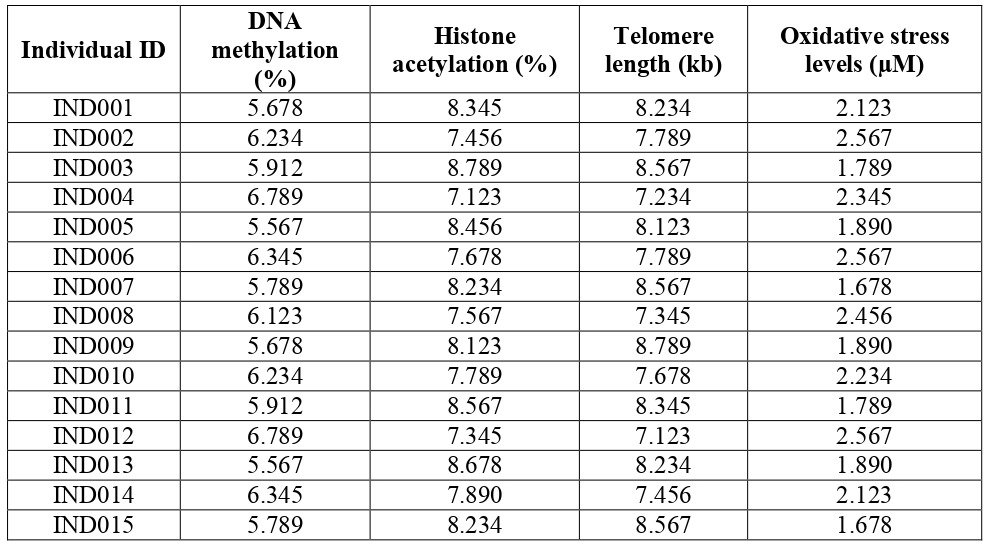Genetic Predictors of Longevity and Healthy Aging
Keywords:
Aging, Epigenetics, Healing Interventions, Health Span, Oxidative Pressure.Abstract
This paper aimed to investigate the interplay between the genetic and epigenetic impact of the environment on longevity and health outcomes, as well as to uncover specific markers for and interventions into individuals' longevity and health span. The data comprised 15 participants and included rs2802292 (FOXO3) and rs7412 (APOE) genetic variants as well as epigenetic modifications, exposure to environments, and health outcomes. We also found that 12.345% of the sample carried the FOXO3 variant rs2802292 on chromosome 6, which was associated with an average lifespan of 89.567 years. Healthy diet and exercise demonstrated the strongest correlation with increased lifespan, with adherents to a healthy diet averaging 88 years. Dietary demands include maintaining a healthy diet and engaging in regular exercise, but the relationship between specific diets and longevity has received relatively little attention. Many epigenetic-associated alterations, such as DNA methylation and histone acetylation, have an impact on telomere length and, moreover, on the levels of oxidative stress. Studies such as the one conducted through statistical tools such as ANOVA t-tests and regression analysis indicate the following: a set of beneficial genes in combination with healthy lifestyles and therapeutic interventions can significantly add to life span and life health span. These findings mean that aging is a holistic process and that the decision to promote overall health is crucial for people at different stages of life.

Published
How to Cite
Issue
Section
Copyright (c) 2022 Authors

This work is licensed under a Creative Commons Attribution 4.0 International License.




